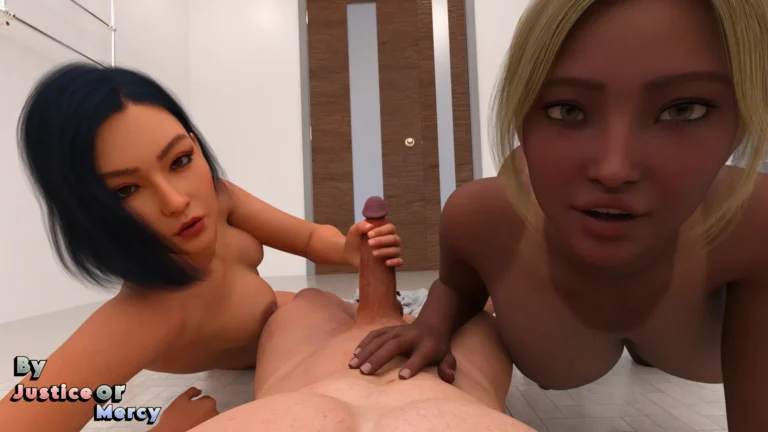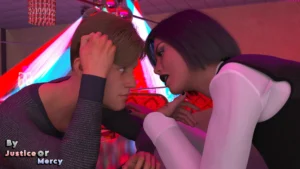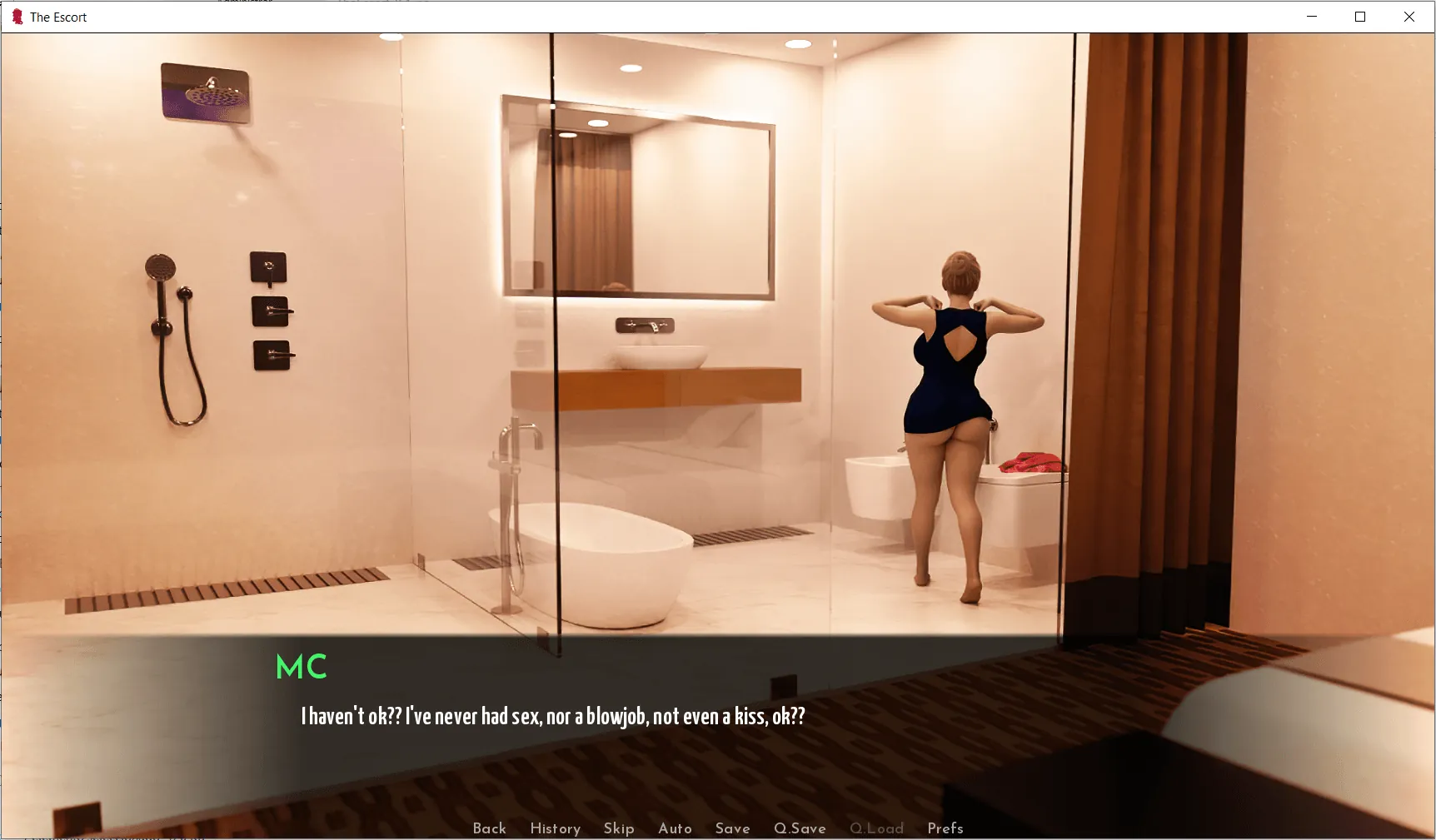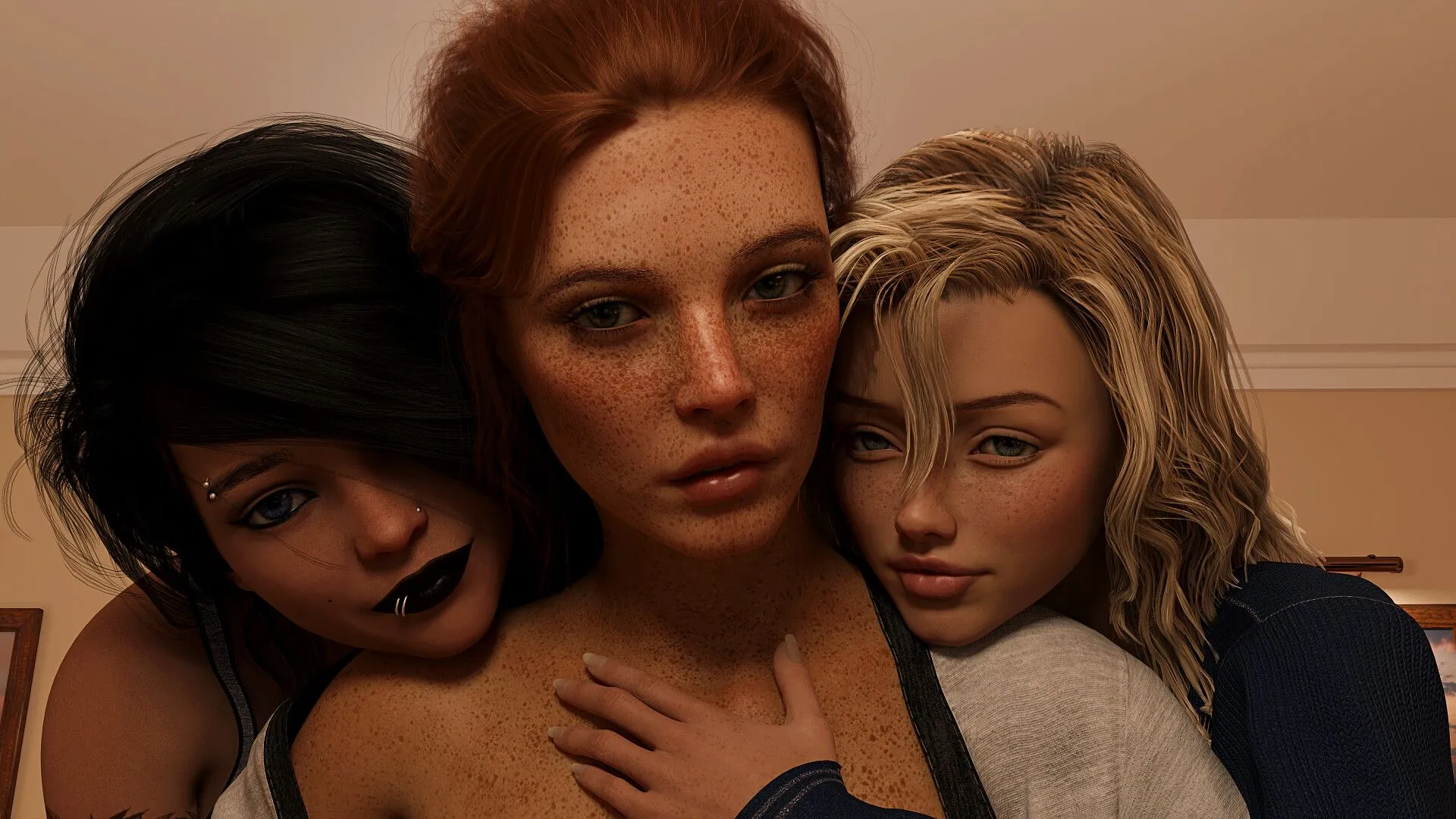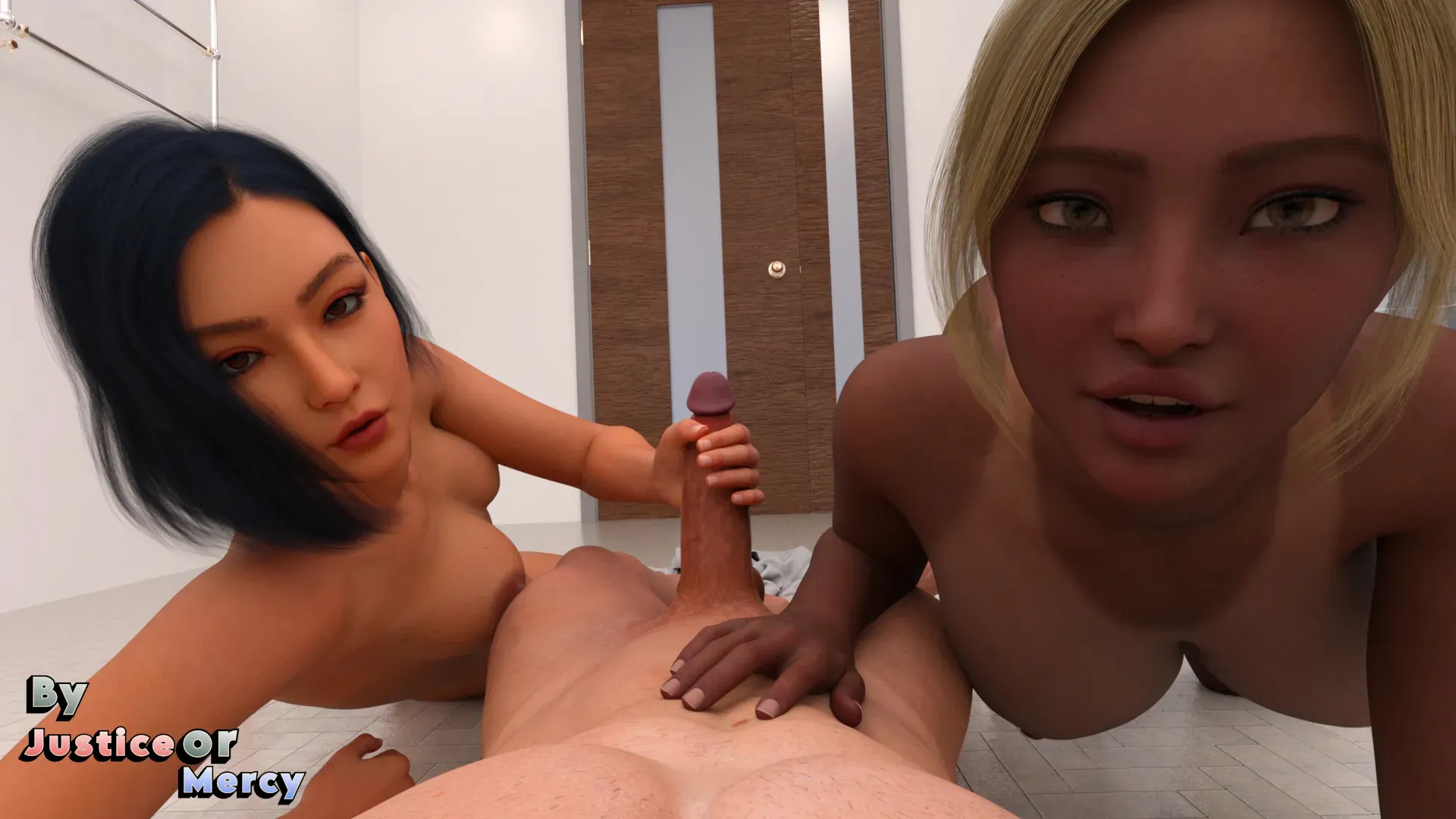
By Justice or Mercy
Play By Justice or Mercy
By Justice or Mercy review
Explore the Moral Complexity and Tactical Depth of This Unique Story Experience
Step into a world where every decision matters in ‘By Justice or Mercy,’ a game that challenges players to navigate the blurred lines between justice and vengeance, mercy and cruelty. As a quiet yet ambitious protagonist, your journey is shaped by the choices you make—each one altering the story, your relationships, and even the world around you. This isn’t just about winning or losing; it’s about discovering who you become when faced with moral dilemmas. Whether you’re drawn to strategic combat, emotional storytelling, or complex character dynamics, ‘By Justice or Mercy’ offers a rich, immersive experience that stays with you long after the final decision.
The Heart of the Story: Narrative and Choice Mechanics
How Your Decisions Shape the World
Let me tell you about the time I accidentally started a riot in the city square. 😅 I was playing By Justice or Mercy, and my quiet, thoughtful protagonist was trying to resolve a dispute between a merchant and a beggar he’d accused of theft. I had a choice: follow the strict letter of the law and have the beggar arrested on circumstantial evidence (Justice), or show compassion, paying the merchant for his “stolen” goods to de-escalate the situation (Mercy). I chose Justice. I thought I was being principled. What followed was an unexpected cascade of story consequences. The beggar’s friends in the crowd saw the arrest as an abuse of power; a thrown rock led to a guard’s overreaction, and suddenly the entire marketplace was in flames. My single decision didn’t just close a quest—it physically altered a central game location and turned a whole faction against me. This is the power of the choice-driven narrative in this game.
Every dialogue option, every action, and every silent judgment you make is a thread you pull in the vast tapestry of this world. The game doesn’t just acknowledge your choices; it remembers them, letting them simmer and evolve into major plot points hours later. This intricate design is what creates the incredible potential for multiple endings. You’re not just picking a “good” or “bad” ending from a menu; you are architecting your own conclusion, brick by moral brick, throughout the entire journey. Your moral alignment isn’t a simple slider; it’s a reputation that precedes you, influencing how characters you’ve never even met react to your presence. 🧱
Building Relationships Through Choices
In most games, your companions are set pieces. In By Justice or Mercy, they are a direct reflection of your actions. The dynamic relationship system means that your closest ally in one playthrough might be your mortal enemy in another, all based on your behavior. I learned this the hard way with Elara, a stalwart captain of the guard. In my first playthrough, my ambitious protagonist consistently supported her aggressive tactics to clean up the city, and she became my unwavering right hand. 🤝
But in my second run, I decided to be more empathetic. When Elara wanted to raid a tenement building full of squatters, I refused, advocating for a peaceful solution. The game didn’t just give me a “relationship points -10” notification. Elara confronted me later, her dialogue completely different. She accused me of being soft, of endangering her troops, and she slowly began withdrawing her support. She wasn’t just a quest-giver anymore; she was a person with her own moral code, and I had violated it. This is where your protagonist development shines. Are you the quiet diplomat who wins hearts with whispered words, the ambitious climber who forges alliances of convenience, or the quick-tempered rebel who burns bridges? The game’s characters respond authentically to these traits, making every interaction feel meaningful and earned.
Example: A Tale of Two Brothers
Let me paint you a picture of a pivotal choice I faced. Early on, you find two brothers, Kaelen and Roric, arguing over their late father’s legacy. Kaelen, the elder, is a pragmatic merchant who wants to sell the family forge to pay debts. Roric, the younger, is an idealist who dreams of keeping the tradition alive.
- The Justice Path: I sided with Kaelen, my ambitious protagonist seeing the logical economic sense. I argued that sentimentality doesn’t pay bills. The consequence? The forge was sold. Kaelen became a powerful, wealthy contact who funded my ventures. But Roric? He vanished from the game, bitter and betrayed.
- The Mercy Path: In another session, my quieter protagonist listened to Roric’s plea. I helped him find another way, convincing Kaelen to give him a chance. The consequence? The forge stayed open, becoming a hub for a faction of traditionalist craftsmen. Roric became a loyal friend, crafting unique gear for me, but Kaelen viewed me as a naive fool, limiting my access to the city’s merchant guild.
This single side quest didn’t exist in a vacuum. It locked and unlocked entire faction storylines, determined which resources I had access to in the late game, and fundamentally changed the network of allies I could call upon. The story consequences were profound and permanent. 🔥
The Consequences of Mercy and Justice
So, what does it truly mean to walk the path of Justice or Mercy? The game brilliantly avoids easy answers. A “Just” decision can often be cold and brutal, creating order through fear. A “Merciful” act can sometimes be perceived as weakness, emboldening your enemies. Your moral alignment is constantly being tested and recalibrated, and the world reacts in real-time. NPCs will comment on your reputation. A guard might let you pass without a bribe if you’re known as a fair arbiter, or a desperate citizen might beg for your help specifically because they’ve heard of your compassionate nature. 🙏
This goes far beyond simple dialogue changes. It affects gameplay mechanics. For instance, if your alignment leans heavily towards Vengeance (a harsh form of Justice), shopkeepers might charge you more out of fear, but certain intimidating dialogue options become available. If you’re known for boundless Mercy, you might be ambushed more often by bandits who think you’re an easy target, but you’ll also find more people willing to offer you shelter and information for free. The choice-driven narrative is woven directly into the gameplay loop, ensuring that your philosophical stance has tangible, practical effects.
Practical Tip: Don’t try to game the system. The most rewarding way to play By Justice or Mercy is to role-play consistently. Pick a personality for your protagonist—quiet, ambitious, or quick-tempered—and stick to it. Make decisions that feel right for that character, not what you think the “best” outcome is. You’ll be amazed at how the story organically forms around your authentic choices.
Maximizing Your Experience and Replay Value
This brings us to the crown jewel of this experience: the incredible replay value. I’ve completed the game three times, and each run felt like a completely different story. The first time, I was a righteous judge. The second, a forgiving peacemaker. The third? A quick-tempered revolutionary who trusted no one. Each path revealed new locations, entire questlines I never knew existed, and shocking narrative twists. The pursuit of different multiple endings is not a chore; it’s a delight of discovery. 🎁
The key to unlocking this is to make different core decisions early on. Ally with different factions. Embrace your protagonist’s other personality traits. If you were quiet before, be loud. If you were merciful, be stern. The game’s relationship system is robust enough to support these radically different approaches, leading to unique character arcs and conclusions. The depth of the protagonist development ensures that even if you see the same cinematic twice, its emotional weight will be entirely different based on the journey you took to get there.
Here’s a glimpse at how some of the major branches can unfold:
| Major Decision Point | Justice-Leaning Choice | Mercy-Leaning Choice | Potential Long-Term Outcome |
|---|---|---|---|
| The Noble’s Trial | Execute the corrupt lord for his crimes. | Strip him of his titles and banish him. | His house seeks vengeance OR a power vacuum creates new conflicts. |
| The Refugee Crisis | Enforce the city’s strict immigration laws. | Open the gates, sharing resources. | Gain military support from citizens OR face internal strife and disease. |
| The Betrayal | Publicly expose and imprison the traitor. | Offer them a chance at redemption in secret. | Strengthen faction loyalty OR the traitor becomes a powerful, secret ally. |
Ultimately, By Justice or Mercy is more than a game; it’s a personal narrative laboratory. It respects your intelligence and your capacity for moral reasoning, offering a world that is not just responsive, but alive. Your choices are the heartbeat of this story, and every pulse sends ripples through a world waiting to be shaped, for better or worse, by your hand. ✨
‘By Justice or Mercy’ stands out as a game that truly puts the power of choice in your hands, challenging you to weigh every action and its consequences. Whether you lean toward justice, mercy, or something in between, your journey will be uniquely yours—shaped by the relationships you build, the enemies you outsmart, and the legacy you leave behind. Ready to see how your decisions rewrite the story? Dive in, explore every path, and discover what kind of hero—or antihero—you’re meant to be.
